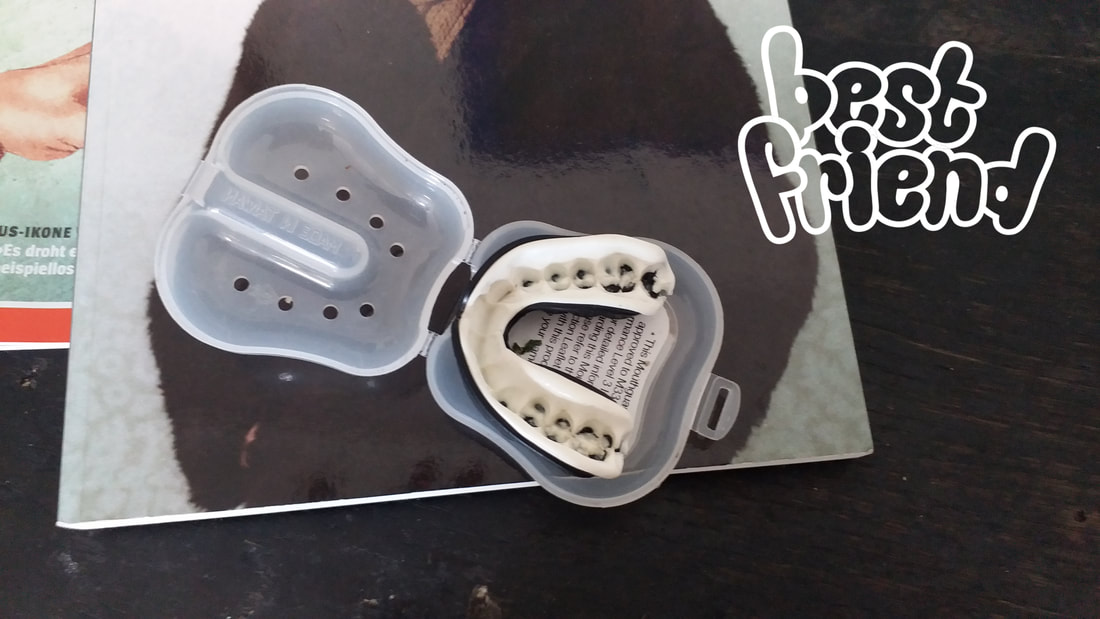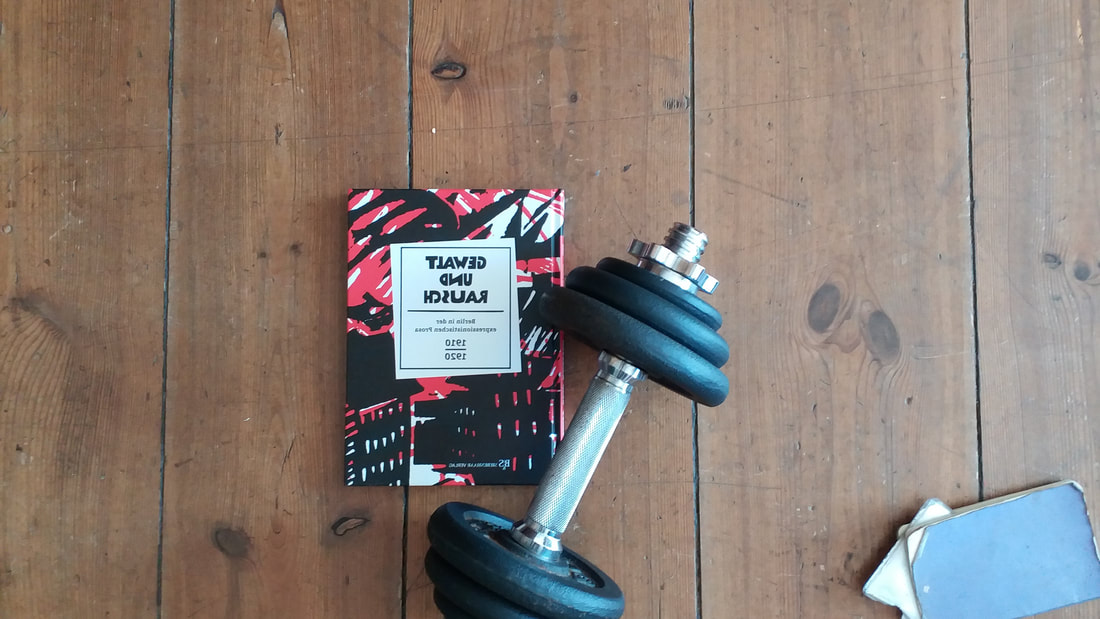|
Our writer receives a heartening missive from a dear mentor.
I've been emailing my good friend and mentor, Joyce Murdoch, a lot. She is grieving her partner, Deb Price– America's first openly gay columnist whose mantra was "don't let fear choose your path". Joyce has been encouraging me write fiction for years. I recently told her I was struggling with workshops I had attended, and the process involved in receiving feedback. She wrote back, with trademark elegance. Hello, my friend-- Deb used to always say that she didn't know what she thought until she said it out loud. I didn't want to speak until I knew what I thought....That was a minor source of conflict over the years. She always wanted me to speak a bit more; I always wanted her to speak a bit less. And now, of course, I'd give every cent I own just so speak with her again. Anyway, that's a long way of getting around to saying, once again, that I think you ought to take the risk of writing fiction. Just write it for yourself. Get the pleasure of seeing your thoughts and feelings take shape on paper (well, on a screen at least). And do NOT--repeat, do NOT--show a word, a paragraph, a chapter to anyone until you are satisfied that you're done. Yes, writers are extremely sensitive, especially to anything that smells like criticism. Yes, writing something that actually matters to the writer feels like opening a vein. Yes, the entirely human response to having one's creative writing critiqued is to want to run away and never pick the project back up. Despite all my years as an editor, I have never ever understood why anyone thinks writing workshops or sharing a writing project while it is underway are good ideas. Creative writing should be just that--imaginative, new, unique, something no one else could have written in quite the same way. And it should tap into--for lack of a better word--the "soul" of the writer. Premature feedback--if it doesn't simply shut the writer down entirely--is going to push the writer back toward the expected, back toward works that are already out there in the world, back toward what the "group" thinks you ought to be saying with your writing, not what the blood spilled on your pages tell you. Embrace your sensitivity. Cherish it. Nurture it. Respect it. Your sensitivity is one of the traits that, I feel confident, will one day make you a fine writer and, if you want, a published author. Do NOT try to pound your sensitivity out of existence. You would, I think, kill off your creative spirit at the same time. Several years ago I wrote a novel, Twelve Turtles. The project began as simply catharsis: I had things I needed to "say" and nowhere to say them. The person I wanted to say them to wasn't speaking to me at the time. As the word count grew, the writing became really enjoyable. I loved spending hours on end with the characters I was creating and enjoyed discovering how they interacted with one another in ways I had not expected and seeing where they were taking the plot, which had had only the vaguest outline in my mind at the start. I wrote the chapters in a thoroughly haphazard order, depending on what part of the story was speaking to me at the time, and had to sort them out later. Eventually, the novel felt complete. And I was quite pleased with it. Still am, in fact. I think it's one of the best things I've ever written. Because I didn't want the novel to be public, I paid a vanity press to print 15 or 20 copies. I gave most of them to a few close friends. And even then--even when I gave them to professional writers and editors--I said, "This is a gift. I hope you enjoy it. This is not an invitation to critique the work." Even though my novel was a work of fiction is was really personal and if people had "helpful suggestions" about how it could have been different I just didn't--and still don't--want to hear them any more than I'd (theoretically) have wanted to hear that my baby would have been more handsome if his eyes weren't blue and his hair weren't curly. Can you imagine if Mary Oliver had "workshopped" my favorite poem, "Wild Geese"? People would say, "what's with the first line'''You don't have to be good?' Sounds like the intro to a self help book!" And "Why 'wild' geese? Why not just 'geese'? And on and on....until the wonderfully strange amalgam that makes "Wild Geese" so meaningful to countless readers would been ruined. Gotta run to mahjong. Would love to hear your thoughts. -Joyce
0 Comments
 Just off Hermannstrasse, Neukölln Just off Hermannstrasse, Neukölln In which the writer has her work critiqued and as a result offers her reader a greater deal of context. I have recently shared one of these posts with a writing partner whose feedback was as follows: “It’s the rambles of an ‘impossible’ narrator who provides no context.” I suppose there is some truth here. An editor once made a similar remark about my writing: “It takes you awhile to get to the point.” He echoed much of what I heard growing up, trained under the maxim that everything worth saying can be whittled down to a headline, and that all headlines that stretched beyond two lines were a disgrace. That everything halfway from here to there says nothing at all. There was news. And there was dross. And then, there was the perfect headline. Why could I never write the perfect headline? Why do I still struggle in writing the perfect headline? It’s never quite there. It’s always short of that one word that I can’t access, that’s sitting just on the tip of my tongue. Somehow that perfect New York Times-esque balance between punch and elegance eludes me. There was news, and there was dross. I edited myself accordingly. Kept quiet the places I did not know. Listened for a clarity that never came. Now I wonder whether these meanders into nowhere and everywhere are my own rebellion. But here: some context: When I began these posts I pitched myself to my invisible audience as a so-called “third/culture/kid” having returned after years of timeawayness as a journalish-daughter-of-a-journalist relocating to a city I once knew fromchildhood. Along the way I have described the ethical quandaries, the pain and relief of leaving Hong Kong during its depressingly historic moment, I have gone into the various emotional and intellectual quagmires of my trade, and I have also taken little forays into the world of MMA that had served as a much-needed escape and which helped me learn to embrace parts of myself buried deep underneath all this excessive thinking and analyzing and worrying, and this unshakable, maladaptive perfectionism that always burns me out. On the mat, I don’t have to be perfect. I just have to be game. “Stop thinking about what you can’t do, start thinking about what you can,” my first coach used to say. Through this time, in which I went from staring bleakly out of windows, and partaking in my favourite pastime, that is, walking wherever my feet take me, new responsibilities came my way, not least a fellowship inviting me explore Europe’s shifting media landscape, and so have various shifts within me taken place. I can’t say I myself have achieved a sense of belonging here (I am doubtful as to whether that would happen anywhere). But I believe I have found my feet. And I am getting a little bit closer to achieving one thing I set out to do: Be imperceptibly foreign when I open my mouth. Last week, someone mistook me for a Bavarian. I consider this progress. More context: I would pretend that I had bold plans for this little, aimless project of mine. But really it was to help keep my fingers busy and my mind active through Corona, and because writing is always what I do when I need to figure things out, and returning to Europe after all these years away has been one of the strangest, most necessary things I’ve had to do. Bounding into the unknown has always come far easier to me than homecomings. There is your context, kind, invisible reader. Oh, to explain another point: I have entered into the habit of beginning each entry by describing the view outside my window: A warm up for my fingertips that reminds me of an early premise made here: That a change in perspective might resolve certain feelings of restlessness in looking at something that seemingly remains the same. I observed seasonal shifts from my window, tried to interrogate my view in a way that would prevent me from growing bored of it.
But I also cheated in this exercise. I have moved twice now since I began this blog, and I still can’t escape my geographical restlessness, much as I know that staying put, creating routines and a sense of familiarity and attachment, are what I need to do to find the roots that elude me. This new view is so far my favourite. Especially at golden hour, which it is right now. I’m not sure I’d appreciate autumn so much if I hadn’t lived without it for so long. Read more on Sarah's Mixed Martials Arts journey via the links below: 1. Fight Club 2. Lessons from the mat 3. Good and bad algorithms 4. Taming the lizard brain Read her summary of why she fights, and what cultural value MMA brings in her BIO.  In which the writer makes an inventory of the bruising inflicted during a particularly passionate week of fighting and learning. Early morning. Birds moving mostly in one direction, brown has overtaken green and leaves jitter. Visually, winter’s approach is palpable. Physically, also. I wear woolen socks my mother knitted. My feet still feel a chill, but it’s fine. The sensation wakes me up, keeps me alert. These are in fact the perfect conditions for writing. Mild, austere discomfort, and quiet. As I take this inventory of subtle hallmarks of a seasonal shift, I notice changes that have occurred in my own body this week, too. A greater determination and focus has seen me commit more time to the mat, and the ensuing improvements in performance have lead to me taking greater risks, and showing more tenacity and confidence in a fight: Has led to me showing up, in a fight. Working actively, not just reactively. Though my hesitance in committing to a takedown pervades. I continue to opt for the process that has worked time and again: Keeping low, letting my opponent execute the takedown, and allowing my body to do what it often seems to do of its own accord in this particular context, that is, somehow land and flip things around such that I end up having the upper hand. “You always fall on your feet,” my mother likes to say. This shift in tenacity and confidence writes itself into my body. My shins, first, are peppered with subtle green and purple bruises, and there’s a cut on my ankle proving that a sparring partner has not abided by the rules and forgotten to clip his nails. These mementos don’t feel all that strange to me; anyone athletic or outdoorsy would have them. And they remind me of a session we had with my first coach and his motley crew of fighters who were, by the way, some of the loveliest people I’ve ever met, and besides journalists, the best community I’ve found in terms of being able fling this way and that some great zingers. (‘Go read Moby Dick, nerd’ one guy used to shout at me, before demanding I make him a sandwich. Of course, I lined up my own retorts, and fired them in his direction in between rounds. He, a serious gamer turned Muay Thai nut, was a super fun guy, and I really miss him.) But yeah, this session I was reminded of, in which our coach told us to stand in a circle and commit to a chain of low kicks, going round and round, learning to instinctively twist our thighs around and tense up the muscles as we received the kick. “You just have to build up resistance to getting kicked so you can focus on other things during a fight,” he said. You learn to laugh off the pain and see bruises as essential to the learning process. The further up my body these bruises go, the stranger I feel about them, the more I feel like they ought to be hidden somehow. What would people think if they saw them: The purple patch around my wrist the size of my palm which speaks to someone’s attempt to get me into an Americana which I resisted by tensing my bicep, sliding my other hand under him, creating leverage, and clinging to that endangered hand as I slivered out from underneath him. “In this session, would you like to talk about why you like to fight men?” a therapist asked me last year. The answer to that question is, if given a choice (class ratios tend to be 10 per cent women, if that); my optimal opponent is a woman who is just a bit stronger (doesn’t happened all that often, I have to say) and more experienced and knowledgeable than me (happens all the time). This is optimal for learning. The women I fight with, on the whole, tend to be more communicative and gracious, and the experience of being dominated by one tends to stir fewer complex emotions in me. Although I am getting better and distinguishing between the male opponents who want an interesting and challenging fight, and are helpful and cool, from those that, it seems, really struggle with the idea of being overpowered by a woman, and who can get carried away when that prospect presents itself. I can feel it, when those emotions come up in them, and something in my body prepares accordingly. I sharpen, and focus, and something within my chest jitters like those winter leaves, almost impalpably. I operate entirely in a defensive mode and play a long game. I try not to tap out in fear, and I try to get the upper hand as and when they start to gas out from all that huffing and puffing. I protect my wrists. Because these are the guys who especially enjoy a nasty wrist lock which disables you quickly with a sharp, searing pain. A cheap shot. Most importantly, I stay put. I don’t run. And at the end of the round, I shake hands/ bump elbows, and look my opponent steady in the eye. I’ve been told, by women, that the guys you need to watch out for are the ones who show up having watched a bunch of YouTube videos, eager to fling their weight around. Dedicated guys are not really about that, they say. “You know, if it was easy, I wouldn’t keep coming back,” said one guy this week, who taught me two new submissions and to whom I admitted struggling with these complex maneuvers. It’s true. If it was easy I wouldn’t keep coming back, either. And I feel exactly the same way about facing a blank page, too. If writing was easy, I don’t I’d do it so much. There are other bruises, few of them I remember the specific event in which they were inflicted, and which I certainly did not feel as they were inflicted: An ugly and heavy brownish purple one on my arm that has faded surprisingly quickly, and a big annoying purple one on my right elbow that makes itself known every time I attempt to rest on it, and which made me jolt slightly with pain during a meeting in one of those strange moments where the professional persona you have is rudely interrupted by the person you are in your other worlds. Creep higher up my body still and we have something that has never occurred as a result of my recreational activities before: a little bruise on the side of my chin which I would cover up with concealer if I could be at all bothered with applying make up on a day-to-day basis, and a nearly imperceptible scratch on my left eyelid.
This reminds me of a great line from my first coach when he returned victorious from a fight in preparation for which he had had to cut 10kg of weight in under a month while studying his opponent – a kickboxing brawler-type known for his unpredictability in combat. “Still pretty,” he said, on his first day back, pointing at a face that was almost blemish-free. In an interview with The New Yorker, Ronda Rousey, MMA’s (now retired) golden girl (whose face is also blemish-free) said that it was the girls who didn’t look like they fought that you had to watch for. They were the ones who were good. The woman who played a part in coaxing me onto the mat with the line; “I can’t wait to see your first KO” - Hong Kong’s first female professional MMA fighter, who quit her high-powered job in management consulting after smashing up too many computers, also didn’t “look” like she had fought. Some might read the anecdote above as an indication that the person probably most responsible for this strange hobby of mine had anger issues. This simplifies who she is, and what learning to fight does for people like her, people like us. I think some people in this world are racehorses trained to work in pony pens. Intense emotions, like anger, are symptoms of something underlying, something that is wrong, and that needs to change. It’s the lizard brain screaming “enough!” – the part of yourself you learn to talk to, negotiate with, and tame, on the mat in way you don’t get to anywhere else. Not even in a therapist’s chair. I am not sure I can call myself a racehorse. I believe I am little bit too awkward a person for that label. Racehorses are so suave. But what I am doing is operating within a lane which is quite different from what it’s “supposed” to be, and I think what martial arts is helping me do, is find the courage and the tools to commit to this path. And the result is I have a life I love, bruises and all. Read more on Sarah's Mixed Martials Arts journey via the links below: 1. Fight Club 2. Lessons from the mat 3. Good and bad algorithms 4. Taming the lizard brain Read her summary of why she fights, and what cultural value MMA brings in her BIO. |
Sarah KaracsA Berlin-based writer engages in the study of belonging and in-between places after years spent faraway from 'home'. Archives
August 2023
Categories
All
|


 RSS Feed
RSS Feed